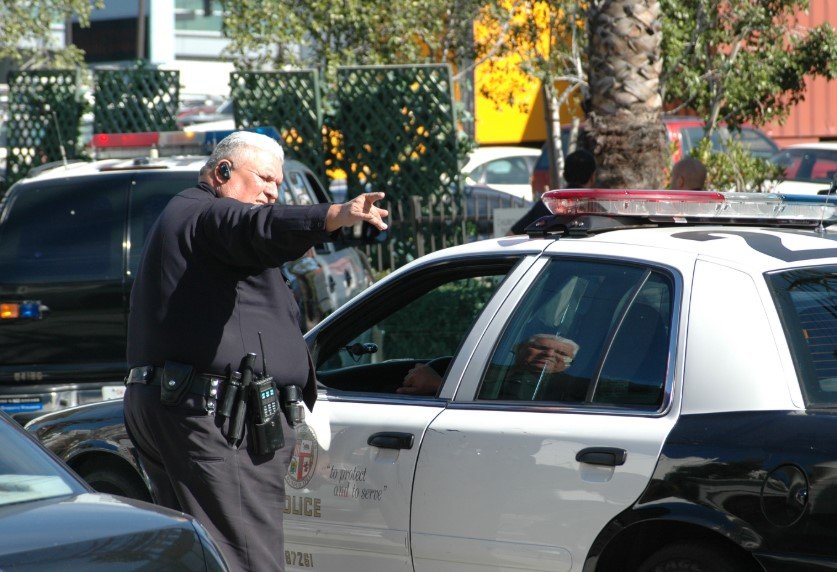Mayor Karen Bass Imposes Curfew, Urges Trump to Halt Federal Crackdowns
Downtown Los Angeles descended into chaos once again this week. A string of anti-immigration protests turned violent, pushing Mayor Karen Bass to impose a curfew and declare a state of local emergency late Tuesday evening.
At the heart of the unrest is frustration over federal immigration raids, which the mayor squarely linked to the escalation in civil disorder. “I call on Donald Trump to end the raids,” she said at a hastily called press conference. The curfew is now in place from 8 p.m. Tuesday through 6 a.m. Wednesday — and likely for days to come.
Why the City Locked Down
The protests had been simmering since last Friday. But things took a sharp turn after 23 businesses were ransacked in under 48 hours. Grocery stores, small family-run shops, and even a local pharmacy were hit. Videos on social media showed streets blanketed in debris and storeowners weeping as they stood in front of shattered windows.
Bass told reporters, “We reached a tipping point,” referring to the sharp spike in vandalism and confrontations with law enforcement. The area under lockdown covers about a square mile of downtown — the epicenter of the demonstrations.
Interestingly, the curfew doesn’t apply to everyone. According to the city’s emergency order, these groups are exempt:
-
Residents who live within the curfew zone
-
Individuals experiencing homelessness
-
Credentialed journalists
-
First responders and emergency services personnel
Trump’s Immigration Raids Draw Fire
President Donald Trump, who recently reinstated a controversial immigration crackdown across sanctuary cities, has yet to directly respond to Bass’s statement. But White House officials defended the raids, saying they were aimed at deporting individuals with existing removal orders.
Still, the timing of the escalated federal operations couldn’t have been worse for Los Angeles.
Bass, visibly emotional during her remarks, said the raids had “sown fear and chaos,” particularly among immigrant communities. “These are people who go to work, raise kids, and contribute to our city. The raids are tearing families apart,” she added.
For many, Trump’s recent moves brought back memories of ICE operations during his previous term — actions critics say disproportionately targeted minority neighborhoods with little regard for due process.

Police Overwhelmed as Protests Spiral
The LAPD said officers were caught off guard by how fast the protests escalated. Things stayed mostly peaceful through the weekend. But by Monday night, calls were flooding 911 centers.
One officer, speaking anonymously, said, “It was like the city flipped a switch.” Crowds swelled, fires were lit in trash cans, and rocks were hurled at patrol cars. Arrests have since topped 80, with charges ranging from vandalism to assaulting officers.
The police union has called for more backup and the possible involvement of the National Guard. For now, the mayor has avoided that step.
A 17-year-old student named Alejandra, who joined the protests peacefully, said things spiraled out of control quickly. “We were chanting and holding signs. Then someone threw a bottle. Then it all just exploded,” she said.
The City’s Economic Pain Deepens
Downtown L.A.’s commercial district was already struggling before this. The pandemic had forced several small businesses to close permanently. Now, those who survived are facing another blow.
Below is a look at the recent impact on local business:
| Category | Number Affected | Estimated Damage (USD) |
|---|---|---|
| Small Retail Stores | 11 | $750,000+ |
| Restaurants/Cafes | 7 | $400,000+ |
| Pharmacies | 2 | $150,000+ |
| Electronics Stores | 3 | $300,000+ |
| Total | 23 | $1.6 million+ |
The Downtown Business Association issued a statement late Tuesday asking city leaders for emergency financial aid. “We’re hanging by a thread here. The city needs to step in before we collapse completely,” the group said.
One bakery owner, Ana Lopez, said she had just reopened in March after two years of struggle. “It feels like we’re cursed,” she sighed.
City Officials Face a Balancing Act
The mayor’s emergency powers allow her to impose temporary measures like curfews, close off streets, and deploy more officers. But those decisions are politically risky.
Civil rights groups have criticized the LAPD for what they call heavy-handed tactics, including use of tear gas and rubber bullets. The ACLU released a statement Tuesday night saying, “Restricting movement and silencing protestors is not the answer. De-escalation must come from the top.”
At the same time, some downtown residents have voiced support for the curfew. “I couldn’t sleep last night — the noise, the fear,” said 61-year-old Marvin Kline. “This curfew is necessary.”
The city council is expected to hold an emergency session on Wednesday to discuss long-term measures. Some lawmakers are pushing for new community outreach programs aimed at easing tensions and improving communication between law enforcement and immigrant communities.
What’s Next?
For now, the city is bracing itself. Helicopters buzz overhead. Streets are eerily quiet past sundown. And shopkeepers are boarding up once again, hoping the worst is over.
But uncertainty still hangs thick in the air. Will protests continue? Will Trump respond? Will more cities follow Los Angeles in imposing curfews?
No one knows. But this much is clear — L.A. is hurting, and the healing won’t come quickly.
